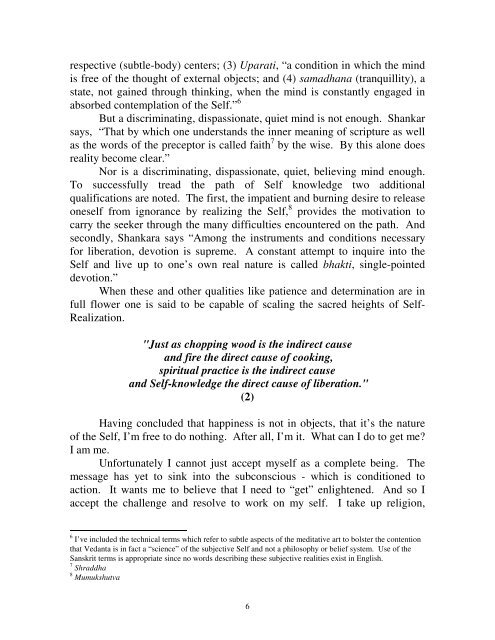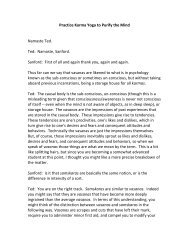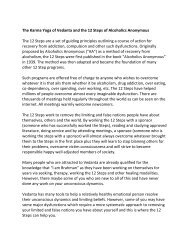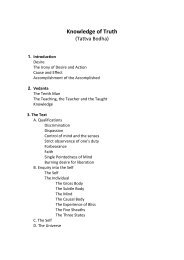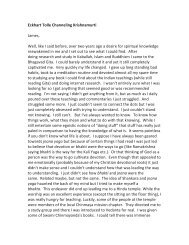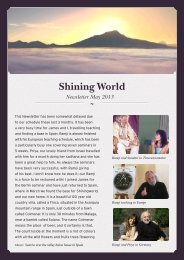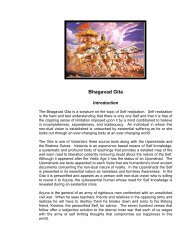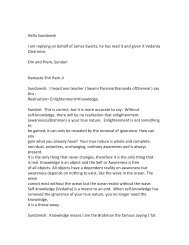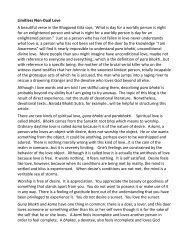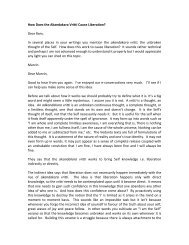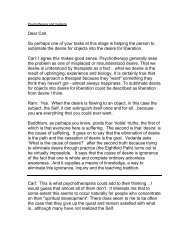Download PDF - Stillness Speaks
Download PDF - Stillness Speaks
Download PDF - Stillness Speaks
You also want an ePaper? Increase the reach of your titles
YUMPU automatically turns print PDFs into web optimized ePapers that Google loves.
espective (subtle-body) centers; (3) Uparati, “a condition in which the mindis free of the thought of external objects; and (4) samadhana (tranquillity), astate, not gained through thinking, when the mind is constantly engaged inabsorbed contemplation of the Self.” 6But a discriminating, dispassionate, quiet mind is not enough. Shankarsays, “That by which one understands the inner meaning of scripture as wellas the words of the preceptor is called faith 7 by the wise. By this alone doesreality become clear.”Nor is a discriminating, dispassionate, quiet, believing mind enough.To successfully tread the path of Self knowledge two additionalqualifications are noted. The first, the impatient and burning desire to releaseoneself from ignorance by realizing the Self, 8 provides the motivation tocarry the seeker through the many difficulties encountered on the path. Andsecondly, Shankara says “Among the instruments and conditions necessaryfor liberation, devotion is supreme. A constant attempt to inquire into theSelf and live up to one’s own real nature is called bhakti, single-pointeddevotion.”When these and other qualities like patience and determination are infull flower one is said to be capable of scaling the sacred heights of Self-Realization."Just as chopping wood is the indirect causeand fire the direct cause of cooking,spiritual practice is the indirect causeand Self-knowledge the direct cause of liberation."(2)Having concluded that happiness is not in objects, that it’s the natureof the Self, I’m free to do nothing. After all, I’m it. What can I do to get me?I am me.Unfortunately I cannot just accept myself as a complete being. Themessage has yet to sink into the subconscious - which is conditioned toaction. It wants me to believe that I need to “get” enlightened. And so Iaccept the challenge and resolve to work on my self. I take up religion,6 I’ve included the technical terms which refer to subtle aspects of the meditative art to bolster the contentionthat Vedanta is in fact a “science” of the subjective Self and not a philosophy or belief system. Use of theSanskrit terms is appropriate since no words describing these subjective realities exist in English.7 Shraddha8 Mumukshutva6


